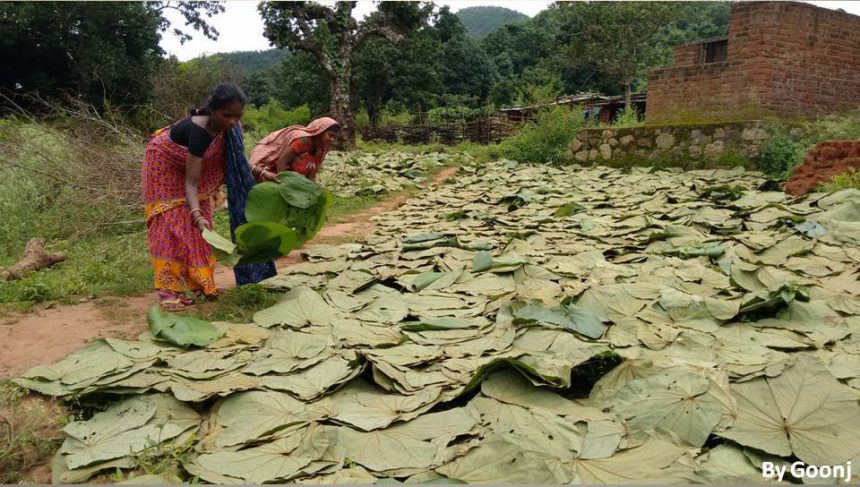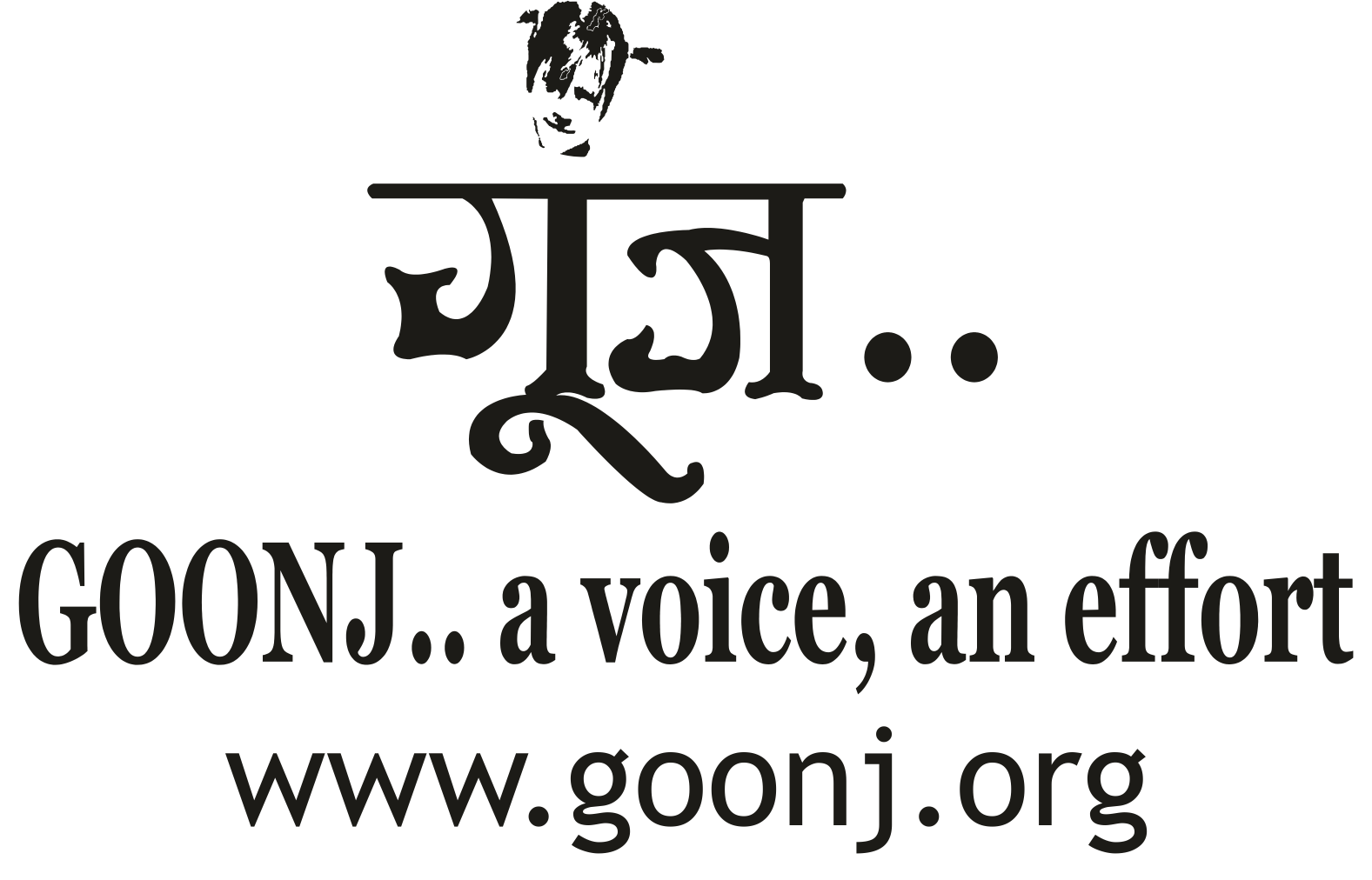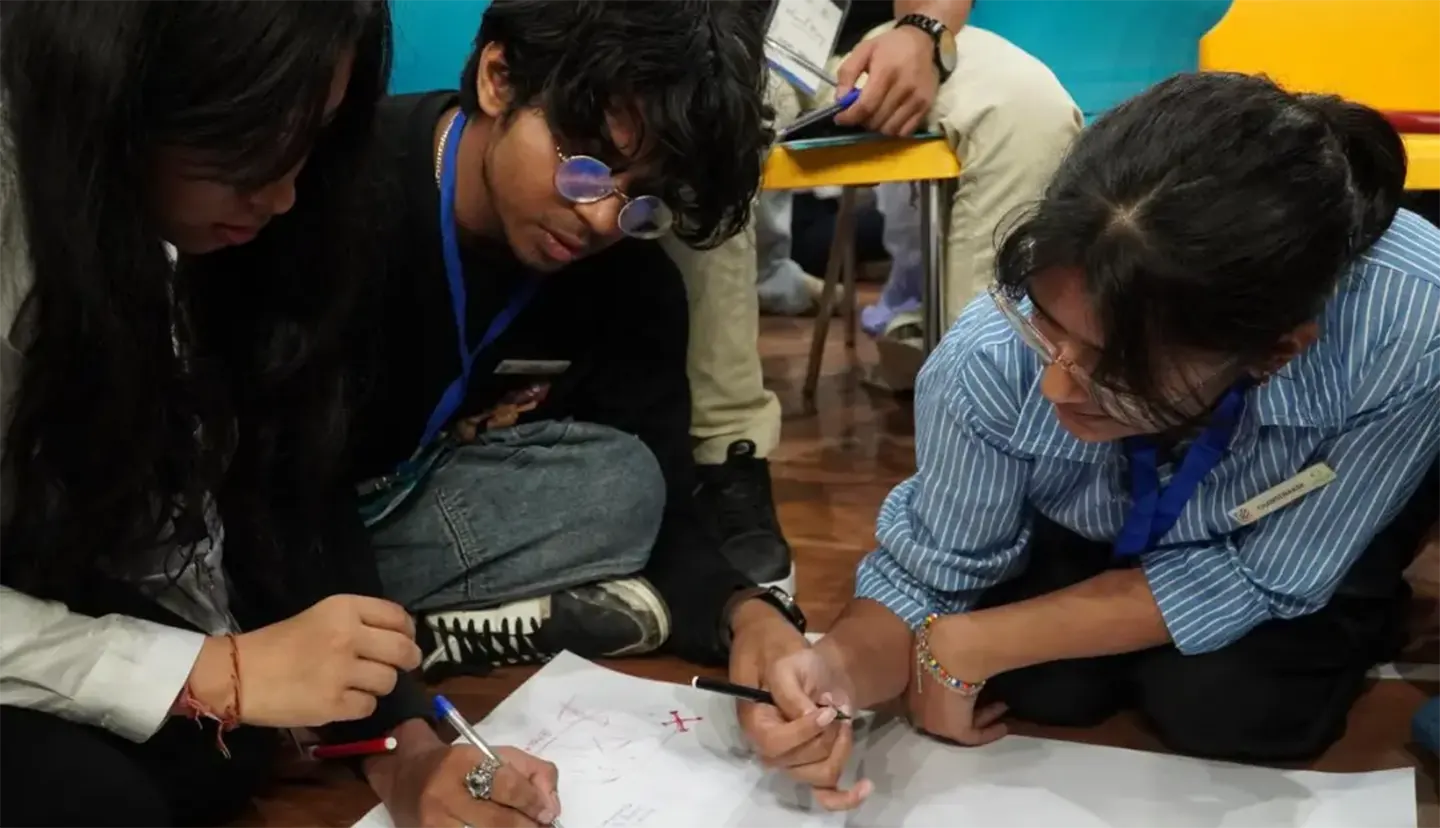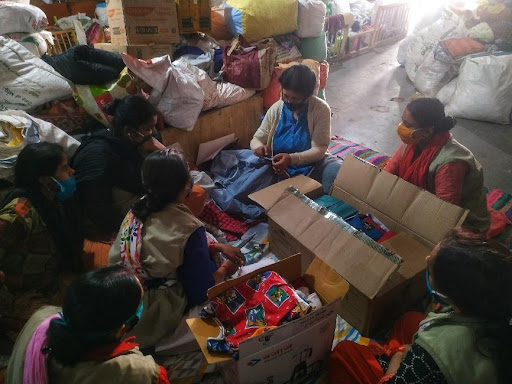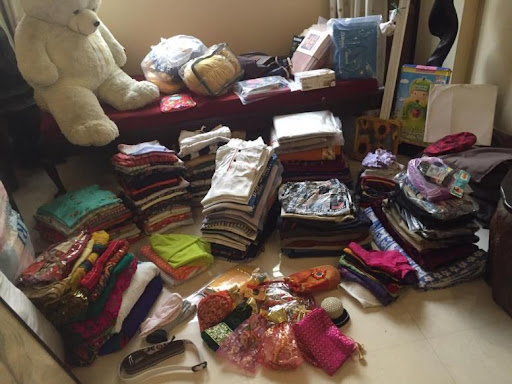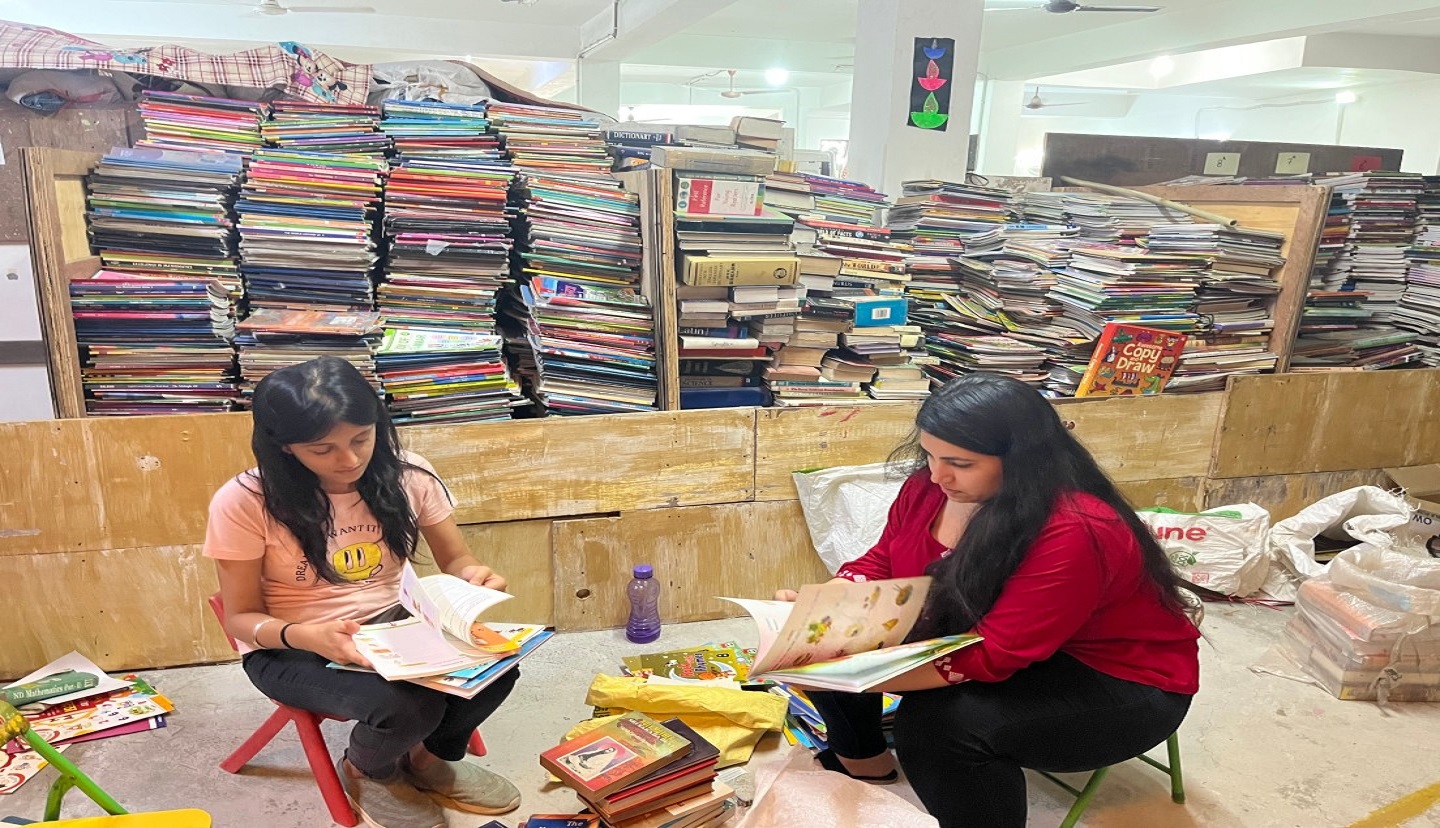“Even today at times of emergency while working in the field or when cloth is not available we use leaves from local Sal Trees.” The women of Koi tribe, Sugapada village of Daringbadi block, Odisha recently spoke to Goonj about their challenges around menstruation. Popularly called the Kashmir of Odisha; the Daringbadi block is surrounded by valleys, mountains and Sal tree forest. These women still don’t have basic facilities. Even the 13 kms road stretch leading to the village is still Kaccha and uneven.
A woman said, “Usually we use clothes for our menses.” On how long does a piece of cloth typically last she added, “On an average every woman has two pieces of clothes to use. We use it for months, sometimes for a year till the cloth tears off.” Dinabandu from our local partner NGO (KZSVS), working closely with these communities for many years, told us, “These women buy clothes once a year. The astonishing fact is that many families still take credit from local Sahukars (money lenders) to buy clothes.. At this affordability rate these women are forced to use a single piece of cloth for a year.”
These women know little before their menarche. They are also completely unaware of the risks of using anything and everything for menses. Their lack of knowledge and awareness about their personal health and hygiene only adds to the problem.
Dinabandhu says about the local health system, “The local ANM comes once a week just for vaccination. Even she doesn’t have knowledge about menstrual health and hygiene. So there is no way of changing their knowledge and practices and hence they follow the primitive methods.” The absence of health facilities nearby; the nearest District health centre in Phulwani, is 130 kms away which can only be reached by a single bus plying on this route.
Another woman said, “No piece of sanitary cloth/pad is available at the local village shops. I buy it from the haat.” This weekly haat is 10 kms away from the village where limited pieces of pad/cloth are available at Rs 50 for 1.5ft by 3ft otherwise they have to travel 40 kms to the nearest block to purchase pads. An adolescent girl said at the meeting, “Sometimes when I can’t find cloth, I skip school during menses.”
Access even to a clean piece of cloth and the inability to afford cloth and /pads are major challenges women constantly face in far flung villages of India. For more than a decade now Goonj has been speaking to women in village India to highlight these aspects apart from reaching clean cloth to them in the shape of MY Pads.Together with our local partner org. KZSVS Goonj reached out MY Pads (Goonj’s Cloth pads) and took awareness sessions in this area.
